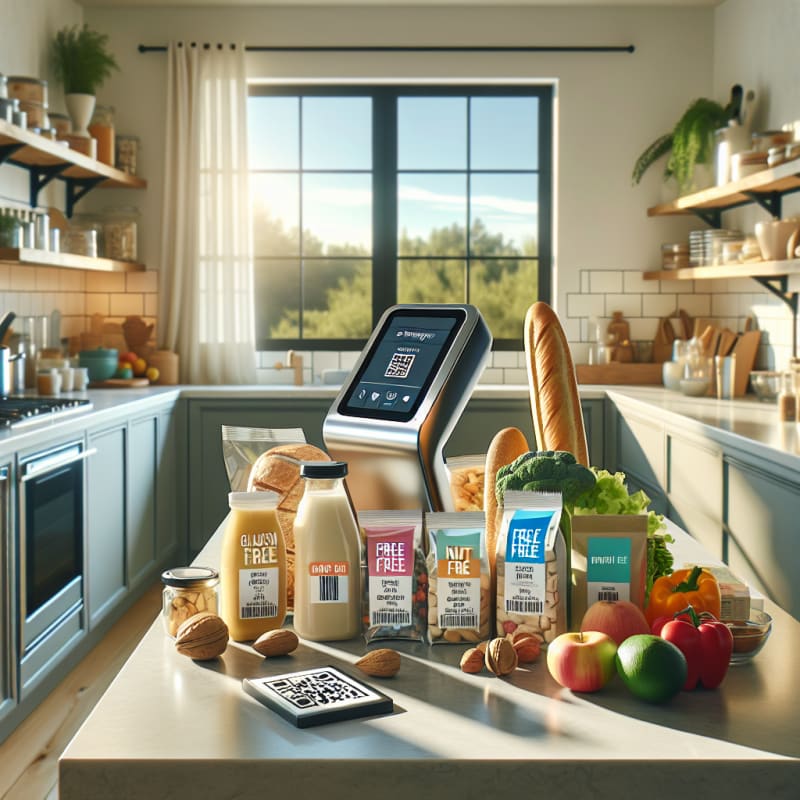Partial Colostrum Feed May Raise Infant Peanut Allergy Risk: Insights for Safer Food Choices
Understanding the ingredients in your food isn’t just for label readers—it’s essential for parents, caregivers, and anyone managing food allergies or sensitivities. Recent research suggests that partial colostrum feeding in newborns may increase the risk of developing peanut allergies, a concern that intersects with broader food safety and labeling issues. Here’s what you need to know to make smarter, safer choices for your family.
What Is Colostrum and Why Does It Matter?
Colostrum is the nutrient-rich first milk produced by mothers after birth. It contains antibodies, proteins, and immune factors that help protect infants from infections and support healthy development. Exclusive colostrum feeding is recommended by health authorities, including the FDA and EFSA, due to its protective benefits.
Partial vs. Exclusive Colostrum Feeding
- Exclusive colostrum feeding: Infant receives only colostrum in the first days after birth.
- Partial colostrum feeding: Infant receives colostrum along with formula or other milk substitutes.
New Research: Partial Colostrum Feeding and Peanut Allergy Risk
According to a recent Medscape article, infants who received only partial colostrum feeds were more likely to develop peanut allergies than those who were exclusively breastfed with colostrum. The study highlights the importance of early feeding choices in shaping immune responses and allergy risk.
| Feeding Type | Peanut Allergy Risk | Recommended By |
|---|---|---|
| Exclusive Colostrum | Lower | FDA, EFSA, WHO |
| Partial Colostrum | Higher | Not Recommended |
| Formula Only | Variable | Case-by-case |
Why Are Peanut Allergies on the Rise?
Peanut allergies are among the most common—and severe—food allergies in children. The National Institutes of Health and CDC report that prevalence has increased over the past decade. Factors include genetics, environmental exposures, and early feeding practices.
Key Scientific Findings
- Early introduction of peanuts may reduce allergy risk (LEAP Study, NEJM).
- Exclusive breastfeeding supports immune development (PubMed).
- Partial colostrum feeding may disrupt immune tolerance (The Lancet Child & Adolescent Health).
- Labeling laws help consumers avoid allergens (FDA Allergen Labeling).
- Food recalls protect consumers from accidental exposure (Food Safety News).
Food Safety Alerts and News Updates
Staying informed about food safety is critical for families managing allergies. Recent alerts include:
- FDA recalls of peanut-containing products due to contamination.
- EFSA updates on allergen labeling regulations in Europe.
- New York Times coverage of plant-based food labeling and its impact on allergen disclosure.
How Food Scan Genius Helps Families Make Safer Choices
For parents and caregivers, navigating ingredient lists and recalls can be overwhelming. The Food Scan Genius app simplifies this process:
- Instant ingredient scanning: Identify allergens in packaged foods with a quick barcode scan.
- Personalized alerts: Receive notifications about relevant recalls and labeling changes.
- Dietary preference filters: Customize searches for vegan, gluten-free, or allergy-safe products.
“As a parent of a child with peanut and dairy allergies, Food Scan Genius has been a lifesaver. I get instant alerts about recalls and can check ingredients in seconds. It’s given me peace of mind at the grocery store and at home.” — Jessica M., Food Scan Genius user
Long-Term Implications and What Parents Can Do
Understanding feeding practices and ingredient safety is crucial for reducing allergy risk and making informed choices. Authorities like the FDA and EFSA continue to update guidelines and regulations to protect consumers. Families should:
- Follow exclusive colostrum feeding recommendations where possible.
- Stay informed about food recalls and labeling changes.
- Use technology like Food Scan Genius to simplify ingredient checks.
Frequently Asked Questions
Does partial colostrum feeding increase peanut allergy risk?
Recent studies suggest that infants who receive partial colostrum feeds may have a higher risk of developing peanut allergies compared to those exclusively breastfed with colostrum. Exclusive feeding is recommended for optimal immune support.
How can I stay updated on food recalls and allergen labeling?
Check official sources like the FDA and EFSA websites, or use apps like Food Scan Genius for instant alerts and ingredient scanning.
What should I do if my child has a food allergy?
Consult your pediatrician, avoid known allergens, read labels carefully, and consider using technology to help manage risks and stay informed.
Conclusion: Make Smart Ingredient Choices for Allergy Safety
Whether you’re a parent, caregiver, or simply interested in what goes into your food, understanding ingredient safety and feeding practices is more important than ever. With new research linking partial colostrum feeding to increased peanut allergy risk, staying informed and using smart tools like Food Scan Genius can help you make safer, more confident choices. Download Food Scan Genius today and take control of your family’s food safety journey.
References
- Medscape
- NIH
- CDC
- NEJM LEAP Study
- PubMed
- The Lancet Child & Adolescent Health
- FDA Allergen Labeling
- Food Safety News
- FoodNavigator
- New York Times





